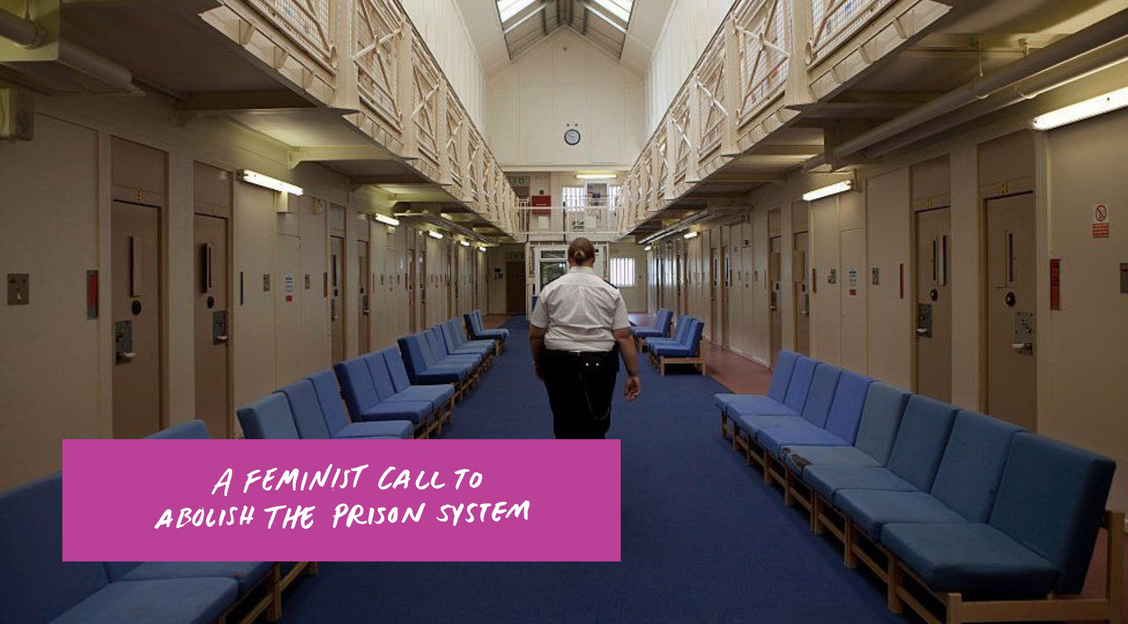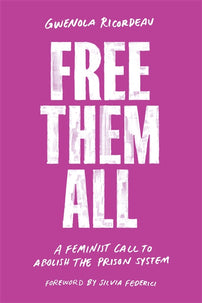Using the law as a weapon
What explains the absence of feminist interest in incarcerated women, and the investment in the carceral system?

The lack of interest among feminist movements in women impacted by prison is obvious. How often are incarcerated women discussed? How many times have feminist organizations protested in front of prisons for women? Who is organizing protests for incarcerated women? What material and political solidarities exist among women who have relatives and friends in prison?
Prison is a blind spot for contemporary feminist movements, with the notable exception of the unjust convictions of certain women who had been victims of violence. For the most part, these movements care little for criminalized women or those who have relatives and friends in prison. But this has not always been the case.
The philanthropic movement that accompanied the first wave of feminism in Western countries was greatly interested in prisons for women. In the United States, attention was focused on white women with whom the reformists—who were also white—identified. This movement resulted in policies of incarcerating white women (who were considered to be in need of being “reformed”) in separate units from men. African-American women, excluded from that sisterhood, remained in prisons for men.
So what explains this absence of interest in incarcerated women or those who have relatives and friends in prison? The answer to that question can be found within the feminist movements themselves, specifically in the ways that dominant movements privilege the perspective of certain women. These are women who, due to their class, race, or sexuality, are less susceptible to being criminalized themselves or having criminalized relatives and friends. Simone de Beauvoir famously pointed out the fragility of sisterhood (and of solidarity among women) as it pertains to class and race: “As bourgeois women, they are in solidarity with bourgeois men and not with women proletarians; as white women, they are in solidarity with white men and not with black women.” In other words, the answer to the question “Who is the political subject of feminism?” matters greatly, because it informs the way that the criminal justice system is viewed from a feminist perspective.
Karlene Faith describes the “resistance to criminality” as a “feminist imperative.” Suffice to say that this is a minority perspective within feminism. Indeed, as many authors have pointed out, since its second wave—in other words, the 1970s— feminism has been characterized by a “growth of carceralism,” to echo a phrase used by Elizabeth Bernstein, who points to a “rise of carceral politics.” Furthermore, as described by Roger Lancaster, the feminist agenda has taken an increasingly punitive turn, and criminal policies have given it greater space. Two issues in particular have exacerbated these tendencies: sexual abuse and violence against women.
The invention of the phrase “carceral feminism” can be attributed to Elizabeth Bernstein, but it is now widely used in the anglophone world. The phrase points out “a cultural and political formation in which previous generations’ justice and liberation struggles are recast in carceral terms.” In other words, prison sentences have become central to contemporary demands made by feminist movements. This trend is manifested in the shift, beginning in the 1970s, toward the increased use of the judicial system in these struggles, notably from the perspective of the criminalization of discrimination. As suggested by Kristin Bumiller, this punitive turn that feminism has taken is not unrelated to the ways in which the neoliberal state has appropriated feminist struggles against sexual violence. And this tendency has been reinforced by movements against “modern slavery” and the “trafficking of women”.
As Jean Bérard recounts, the French feminist movement of the 1970s was split on the issue of the criminalization of rape, in particular after the first convictions by the Courts of Assize. For example, there was Martine Storti, who wrote an opinion piece in Libération on February 24, 1978, titled “Rape: Twenty Years, It’s Not Possible.” By placing the focus on the sentence and by transforming it into a critique of the criminal justice system, a dissident voice was able to emerge. There was also Agnès Ouin, who wrote at about the same time: “Rape recognized as a crime by the criminal justice system, just like bank robbery or home burglary, what a victory! To battle for the recognition of rape as a crime, by an institution that has notions of crime that are completely whimsical and unique to it, which we are also combating, what derision!”
The scope of violence against women and the dissatisfaction of victims (even when the sexual harm that they have suffered has been addressed by the criminal justice system) points to the failure of the judicial approach, which the majority of feminist movements have resorted to for several decades now. Using the law as a weapon does not appear to be the most efficient approach to confronting and defeating the patriarchy. Furthermore, the criminal justice system is a mechanism of the state, and it is therefore unrealistic to hope for any kind of emancipation from it. But it is still undeniably difficult to convey that punitive measures are not solutions.
— Excerpted from Free Them All: A Feminist Call to Abolish the Prison System by Gwenola Ricordeau, foreword by Silvia Federici, translated by Emma Ramadan and Tom Roberge
[book-strip]

